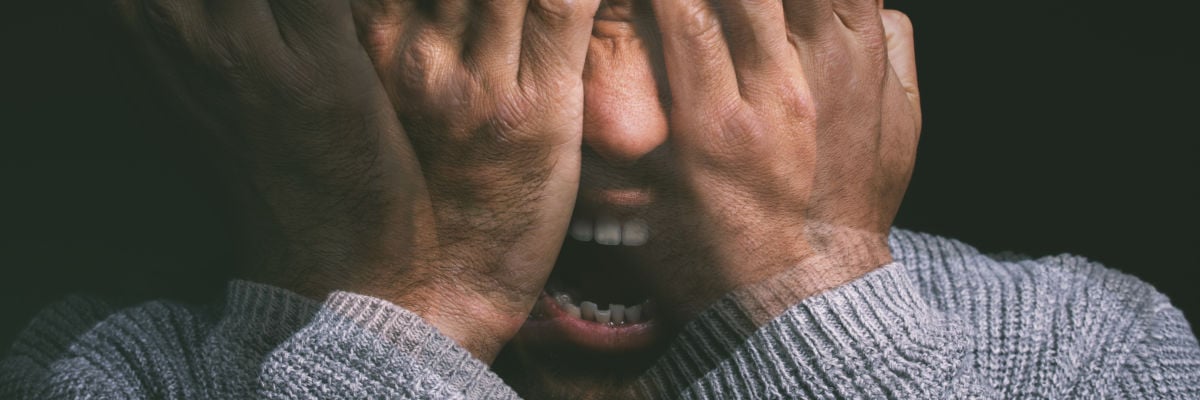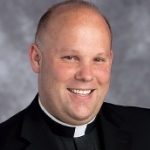
Fr. Bjorn Lundberg recommends Eucharistic Adoration, counseling, Confession, and Deacon Neal Lozano’s book “Unbound” as means of recovering our trust in God after having negative experiences both inside and outside of the Church.
Transcript
Host: We go next to Ray in Lexington, Kentucky. Ray, you are on with Fr. Bjorn Lundberg, what’s your question?
Caller: Hi, Father. I had a question as far as, you know, people have had bad experiences with the Church, you know.
Fr. Bjorn: Right.
Caller: Having the ability to surrender themselves and be vulnerable after having—being hurt in the past. What would you say there?
Fr. Bjorn: This is a huge problem, and it’s a great question, because whether it’s a bad experience with the Church or our experiences in life; whether it’s in relationships within our family or things that have happened to us or crises we’ve gone through; these wounds affect how we look at God. And so, you know, they use this term, like we can be “anthropomorphic;” we can project on God our experience of life. So especially when someone’s been wounded in an area of trust by an authority figure or anyone in the Church or in life, this can then set up problems for trusting God.
So, a couple things I would recommend: one is to spend time in front of the Blessed Sacrament. If the person believes in the Real Presence, that’s a starting point. If they don’t, you know, you kinda just want to work them into—whether it’s Scripture reading, or devotions, or healthy discipleship with other people, that would be a starting point—who they trust. But if you can—you or I or anyone can spend time with the Lord. Even if you do nothing but just sit in His presence, it’s healing. Because Sister Briege McKenna makes the point that if someone goes to the beach and they’re in the sun, you can tell; they’ve got a sunburn, or a tan, or they’re freckled, or whatever. And the same thing: when you spend time with Our Lord, in front of the Blessed Sacrament, it’s like, you know, nuclear—or spiritual chemotherapy or radiation treatment.
A book I’d also recommend is called “Unbound,” by Neal Lozano, he’s a Catholic deacon who’s been involved with the charismatic renewal. And he has these five keys, or five steps, that a person can take to experience greater freedom. He starts—well, there’s an analogy you can use that if someone gets up on a Saturday morning to go into their kitchen for coffee, and it’s wintertime, and they’ve run the heat all night, but when they get to the kitchen it’s freezing cold, they say, “Why is it cold in here? We had the heat on.” Well, they realize someone left the window open or the door open. So they close it and the room warms up. Well, in life, when we’ve gone through trauma or crisis or abuse, there can be sort of spiritual doors that are opened. It’s great to go to counseling, it’s of course essential to go to Confession when we need it, but even with those things, there can sort of be a dark cloud that follows us around, and this would be some kind of form of spiritual attack. So the book “Unbound” is a very practical way to grow in a relationship with our Heavenly Father and have greater healing too.
Host: Ray, how does that strike you? That is awesome, thank you so much, Father.
Fr. Bjorn: You’re welcome, great.
Host: Thank you very much, Ray.



